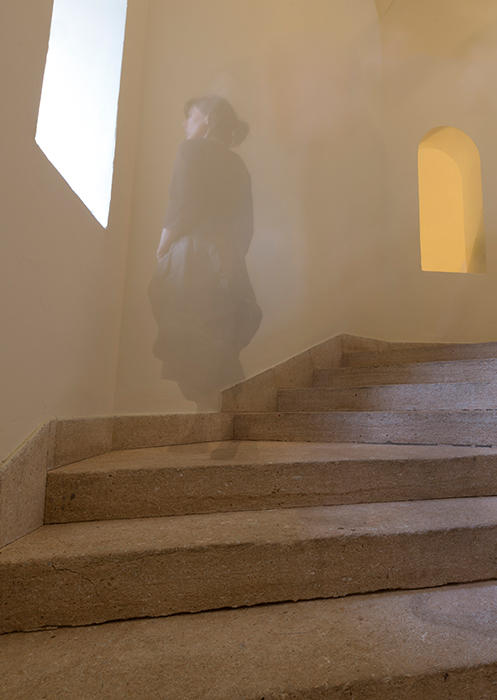Accompanied by a communion of ordinary saints
All Saints’ Day is a reminder of the faithful departed who made room for God, pastor Isaac Villegas writes on his blog site.

When we confess the Apostles’ Creed, our words echo with the voices of the dead – the saints, believers from throughout history.
Marked on Nov. 1, All Saints’ Day is a time for us to remember the people who’ve made possible our faith – to recognize that we speak with their tongues, that we’re indebted to their faithfulness. On All Saints’ Day, we remember that we are not alone, that they accompany us.
In the book of Revelation, we glimpse a heavenly vision of the communion of saints, of believers in solidarity with us — a multitude “from every nation, tribe, people and language” around the throne of God (Revelation 7:9 NIV). When we say, toward the end of the creed, that we believe in “the communion of saints,” we’re calling upon that scene in Revelation 7 – the reassurance of a people on our side, the knowledge that their God is our God.
“The communion of saints” isn’t a select club of very special people. Instead, the phrase is a name for the church through the ages, the people who’ve made possible our communion with God. They welcome us into a community that reaches out to us from the grave.
This year for All Saints’ Day, I remember my great-aunt. She would scold me for this attempt at her hagiography, which is certainly a quintessential mark of saints — that they don’t think they should be called saints.
“The saints never know their own sanctity,” Nicholas Lash writes in “Seeing in the Dark.”
My great-aunt was my dad’s aunt. She dreamed of becoming a nun. However, at the age of 18, before she took her vows, her older sister’s husband – my grandfather – died, leaving my grandmother a widow in her late 20s to raise their 11 children.
My great-aunt vowed her life in service to God and moved into her sister’s house instead of a convent. She lived in an isolated room in the back of the house, at the top of a long staircase – far enough away to pray undisturbed, yet close enough to share in the child rearing.
In that room, and in that household, she spent her life, secluded from the world, except for Mass at their parish each morning. Her life consisted of housework, Eucharist, caregiving and prayer. She was an ordinary saint, someone who gave her life for the lives of others. She surrendered her years to God’s self-giving love.
Saints are people who offer their lives as a home for God, to make room in the world for God’s life to grow. They bear witness to what it looks like to let God live in this world through them. In other words, saints show us how to be disciples. They reveal that discipleship is about hospitality to God: welcoming God’s love into our lives so that new life may be born for others.
That’s why Mary, the mother of Jesus, is the first saint — the person, writes the Dominican theologian Herbert McCabe, who “brought God’s salvation to the world.” She is the first one in the Christian story to show hospitality to Jesus – God with us, God of her flesh.
Other than Jesus, there are two people named in the Apostles’ Creed: Pontius Pilate and Mary, “the one who says ‘no’ to him,” the Anglican theologian Rowan Williams remarks, and “the one who says ‘yes’ to him.” Pilate the sinner, Mary the saint. Their lives outline the possible responses to God.
As sinner and saint – each of us as both at the same time – we wobble from one figure to the other. From day to day, moment to moment, we teeter between resistance and reception of Jesus.
We’re usually like Pilate in our rejection of God’s work in the world and in our lives. But we’re called to be like Mary, to echo her yes, to emulate her posture of welcome to God’s life, the labor of hospitality, to make room for God.
“Behold, I am the servant of the Lord,” Mary responds to God’s plan for her life. “Be it done to me according to thy word” (Luke 1:38).
Saints – like Mary, the mother of our faith, and my great-aunt – guide our discipleship. They testify to the miracle of grace. They bear witness to the movement of God, the labour of the Spirit who transfigures our lives with the Word when we say yes to the gospel. They share the life of God with the world. Their witness beckons us into the gospel, into Christ’s love, for God’s love to become flesh with us.
The lives of ordinary saints not only provide models for discipleship; they proclaim a truth about God – that the Spirit dwells with people, that Christ welcomes us into his body. Like Mary, Christ has said yes to each of us. He has opened his life to receive our lives; he draws us into communion with the saints.
We are here, as members of God’s people, because the Holy Spirit has baptized us with grace, joining our flesh to the faithful who’ve come before us, all of us as members of one another.
All Saints’ Day is an announcement of the hospitality of God – that we are being welcomed into a communion that reaches from Mary to us, through people of every generation, all as a declaration of God’s love for the world. Saints surround us with the Spirit’s embrace.